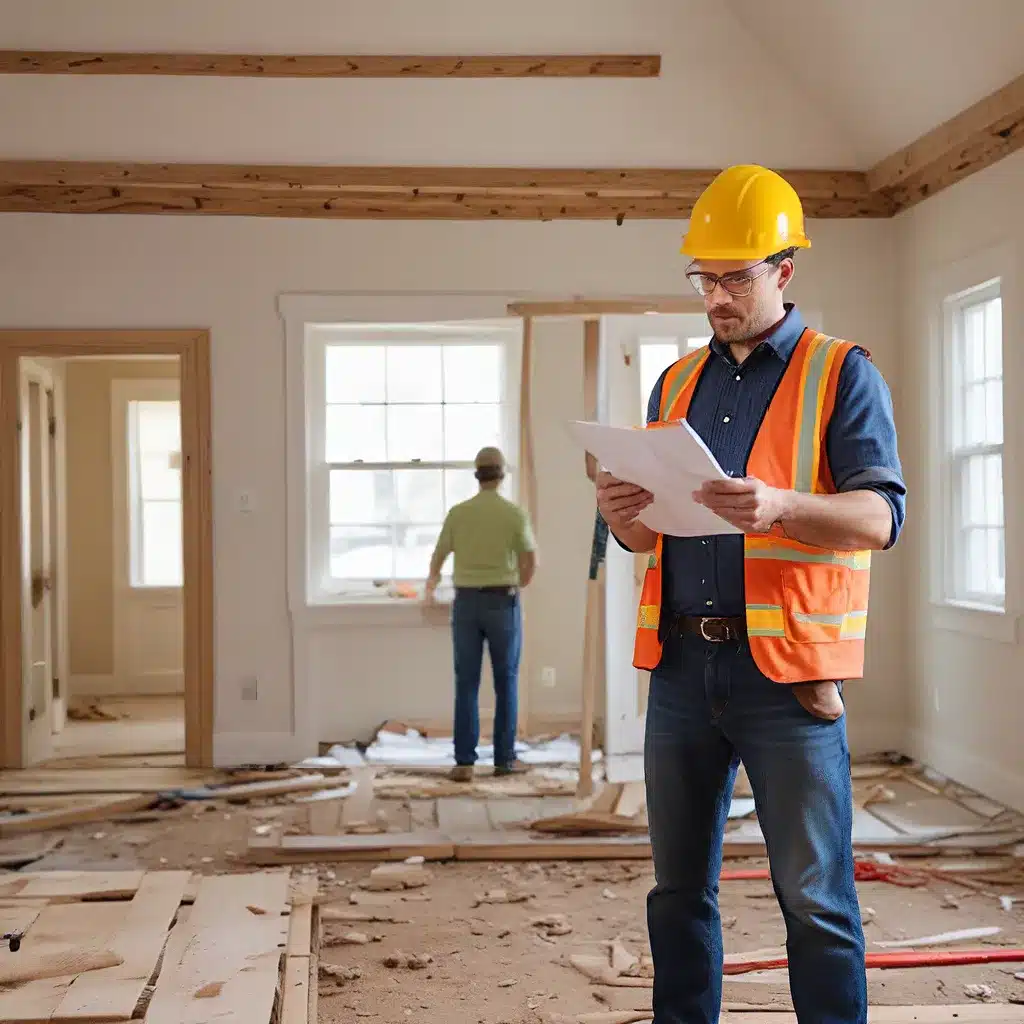
Ah, the life of a general contractor – always on the move, jumping from one job site to the next, trying to keep your clients happy while ensuring the job gets done right. But let me tell you, there’s one aspect of the job that can’t be overlooked: home safety.
As a general contractor, you’re not just responsible for the construction work – you’re also the gatekeeper of your clients’ most precious asset: their home. And let me tell you, navigating the world of home safety can be a real minefield. But fear not, my fellow contractors, because I’m here to guide you through it all.
Understanding Home Insurance: Your First Line of Defense
Let’s start with the basics – home insurance. I know, I know, it’s not the most exciting topic, but trust me, it’s crucial. As the saying goes, “An ounce of prevention is worth a pound of cure,” and when it comes to home safety, that couldn’t be truer.
Now, here’s the scoop on home insurance in Texas: your clients’ home insurance policy protects them financially if their home or property is damaged or destroyed by something their policy covers, like a fire or storm. And get this – Texas has a Consumer Bill of Rights for home and renters insurance, which means your clients will get a copy of the Bill of Rights when they get or renew their policy.
But here’s the kicker: even though home insurance isn’t legally required, it’s still a darn good idea. Why? Because it helps protect your clients’ home and other assets. And if they still owe money on their home, their lender will require them to have it. So, it’s a no-brainer, really.
Diving Into the Details: Understanding Home Policies
Alright, let’s dive a little deeper into the world of home insurance policies. These things can be a real maze, but hang in there, I’ve got your back.
Most home policies in Texas include six key coverages: dwelling, personal property, liability, medical payments, additional living expenses, and guest medical payments. The policy will either provide “replacement cost coverage” or “actual cash value coverage,” and it’s crucial that your clients have the replacement cost coverage to be fully protected.
Another important factor is the deductible – that’s the amount of a claim that your clients have to pay themselves. For instance, if they have a $1,000 claim and their policy has a $300 deductible, the insurance company will deduct $300 and pay them $700. And get this – they might have different deductibles for each type of coverage.
Now, the real kicker is the dollar limits. Each type of coverage has a dollar limit, and it’s crucial that your clients have enough coverage to replace their home and property if they have a total loss. Most companies require your clients to insure their house for at least 80% of its replacement cost, and some even require 100%. Yikes, right?
Identifying Gaps in Coverage: Protecting Against the Unexpected
Alright, let’s talk about some of the gaps in home insurance coverage. Because let’s face it, life is full of unexpected surprises, and you don’t want your clients to be caught off guard.
First up, floods. Most home policies don’t cover damage caused by floods, and if your clients’ home is in a designated flood zone, their lender will require them to have flood insurance. But get this – even if their home isn’t in a flood zone, floods can still happen. Just look at what happened with Hurricane Harvey – more than half of the homes that were flooded were outside of designated flood zones.
And if your clients live on the Texas coast or in Harris County on Galveston Bay, their home policy doesn’t cover wind and hail damage. They’ll need to buy coverage from the Texas Windstorm Insurance Association (TWIA) to protect themselves. And here’s the kicker – they need to do it before there’s a hurricane in the Gulf of Mexico, or TWIA won’t sell them a policy.
Finally, let’s talk about short-term rentals. Most home policies won’t pay for damages or injuries that occur during short-term rentals, so if your clients rent out their house, they’ll need to talk to their insurance agent about getting more coverage. And if they’re the ones renting a short-term rental, they’ll need to check with their own insurance agent to see if they’re covered.
Navigating the Claims Process: Turning Disasters into Victories
Alright, let’s say the unthinkable happens and your clients need to file a claim. It’s not the most fun part of the job, but it’s crucial to know how to navigate the process.
First and foremost, Texas law sets deadlines for insurance companies to act after a claim has been filed, and there are some exceptions to those deadlines. So, your clients need to be aware of their rights and what to expect.
And let’s talk about that deductible. The insurance company will make the check for repairs out to both your clients and their mortgage company, and the mortgage company will hold onto the money until the repairs are complete. So, your clients will need to work closely with the mortgage company to get the funds released.
And here’s a pro tip: if your clients disagree with the adjuster’s estimate or the amount the company is offering to pay, they can use Justice Court to resolve the dispute if the claim is for less than $10,000. It’s a special court that handles small-claims disputes, and they don’t even need an attorney.
Putting It All Together: A Holistic Approach to Home Safety
Whew, that was a lot of information to digest, but I promise it’s all worth it. Because when it comes to home safety, it’s not just about the construction work – it’s about understanding the bigger picture.
As a general contractor, you’re not just responsible for building and renovating homes – you’re also a trusted advisor to your clients. And that means helping them navigate the complex world of home insurance, identifying potential gaps in coverage, and ensuring they’re prepared for the unexpected.
So, the next time you’re working on a job site, take a moment to really think about the bigger picture. Because the truth is, your clients are counting on you to keep them safe, not just in the physical sense, but in the financial one too.
And who knows, maybe you’ll even become the go-to general contractor for all things home safety in the Reading, PA area. After all, knowledge is power, and when it comes to home safety, you’re the expert.
Related posts:
No related posts.




